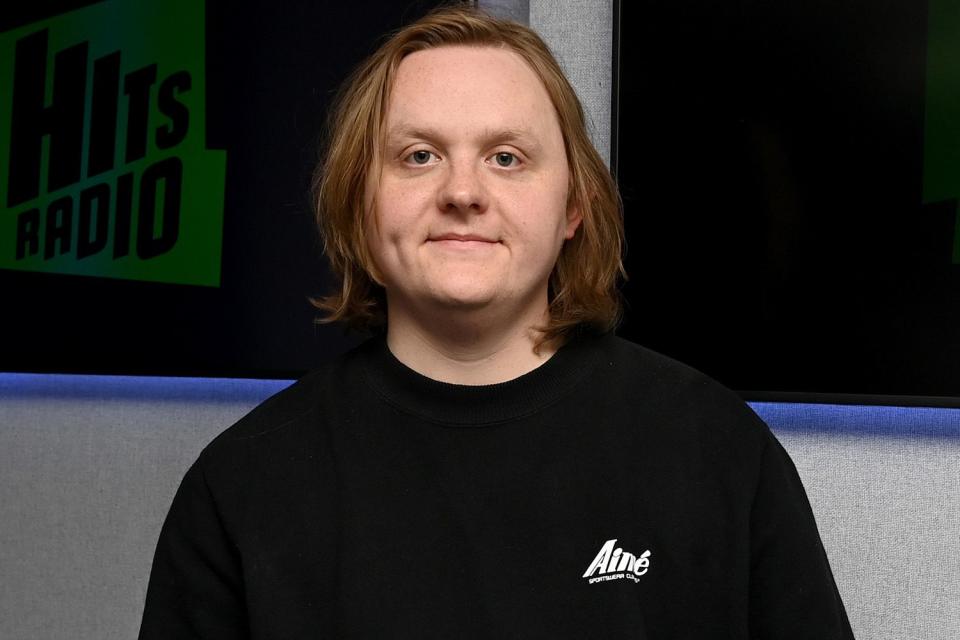Lewis Capaldi's Mental Health Has 'Taken a Beating' Due to His Music Career, Says It Causes 'Distress'
- Oops!Something went wrong.Please try again later.
The Scottish singer-songwriter says he'll quit making music "if it gets to the point where things get worse mentally"

Lewis Capaldi is willing to step away from music in order to preserve his mental health.
During a conversation with Rebecca Judd on Apple Music, the "Someone You Loved" singer — who has shared his struggle with anxiety and Tourette syndrome — opened up about his sophomore album, Broken by Desire to Be Heavenly Sent, and how his career has recently taken its toll.
"I think on this album in particular I talk a bit more about my mental health, which has taken a beating over the last little while," the 26-year-old said. "My mental health issues are a direct symptom of my job."
Capaldi said he's managing his mental health better now, but admitted that he really struggles whenever he's on tour.
"I was in a bad way where I was just having panic attacks every single day on stage and I was just shy," he explained. "I still haven't quite got there, but it's interesting that this thing that you love to do and you've always wanted to do becomes something that causes you such distress, but such is the modern world."
RELATED: Lewis Capaldi Reveals He Has Tourette's Syndrome: 'It's a New Thing — I'm Learning'
The singer said that if he were to make another album and end up "feeling horrible," then he would ultimately step away from his career, despite his love for performing live.
"Right now I'm at a point where I can balance my mental health and how I feel in general…the trade-off is worth it," he said. "I'll take a few panic attacks and my Tourette's and stuff for what's happening, but if it gets to the point where things get worse mentally and I stop kind of looking after myself in that regard, I think that would be a point where I'd be like, 'I'm just not going to do this anymore.'"
"At that point, if it felt like it was becoming something that I was not into or was causing me stress or I hated, then that’s when I would probably pack it in," Capaldi added.
The Scottish singer-songwriter first shared his diagnosis last year, after noticing his shoulder would frequently twitch. He said in a September Instagram Live session that "it happens all the time."
"The worst thing about it is when I'm excited I get it, when I'm stressed I get it, when I'm happy I get it. It happens all the time," Capaldi said of the involuntary twitches. "Some days it's more painful than others and some days it's less painful. It looks a lot worse than it is. Sometimes it's quite uncomfortable … but it comes and goes."
RELATED: Billie Eilish Says She's 'Pretty Confident' in Her Tourette Syndrome: 'It's Part of Me'

Tourette syndrome is a neurodevelopmental disorder characterized by rapid, repetitive and involuntary muscle movements or sounds (tics), according to the Mayo Clinic. The tics typically begin to manifest between the ages of 2 and 15, and males are three to four times more likely to develop the disorder than females.
Tics can range from mild to severe and, in some cases, they can be debilitating and lead to self injuries, according to the Tourette Association of America. The frequency and severity of tics also change regularly, and can be in response to factors like stress, anxiety, excitement, fatigue, illness and more. One out of every 160 children between the ages of 5-17 in the United States is diagnosed with Tourette syndrome.
Capaldi told his followers that he originally thought he had "some horrible degenerative disease." He said being diagnosed with Tourette's "makes so much sense" after noticing his twitching in old interviews from 2018.
"I do the shoulder twitch quite a lot. And you see underneath every TikTok and stuff, people are like, 'Why is he twitching?', which is fine. Curiosity is fine. I get it," the singer said at the time, noting that he spoke out about the disorder because he didn't want people to think he was "taking cocaine.”
"It's a new thing, I haven't really learned much about it — I'm learning," he said.
For more People news, make sure to sign up for our newsletter!
Read the original article on People.

